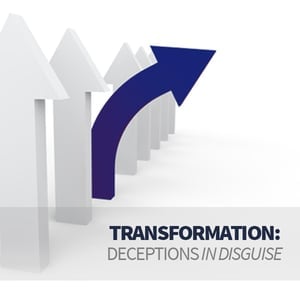I was one of the very fortunate people invited to speak at the recent TriAgile 2016 Conference in Raleigh, North Carolina. This was a great honor and a privilege for me and not one that I had undertaken lightly. Indeed, I had spent a lot of time pontificating over what topic I should speak about; should I delve into the right way to do stand-ups? Or focus on the difference between progress and status updates? Maybe give a master class on story pointing? All of these and many more appealed, but one topic kept coming back to my mind – if so many of us have shifted towards an Agile way of working, why is Agile not the de facto model for projects?
This one idea kept coming back to me no matter what else I tried to write about and so, I decided to tackle it head on. My presentation was going to be called ‘Why is Agile Failing?’
Presentation Excerpt
Here is the excerpt I supplied to the TriAgile Conference prior to the event:
Why is Agile Failing us?
The concepts of Agile have been around for a while now, Scrum since 2001 for example or even Taiichi Ohno 60 years ago and the early days of the Toyota Production System which lead to Lean. So, why are we still struggling with agile concepts and processes? Why do we not deliver more successfully all the time? Considering Agile to be better than Waterfall does not mean Agile is successful.
What are we doing wrong?
As a concept of principles and values Agile offers some excellent guidance for us all to consider but they are not always embraced as they should be. Often we find organizations that are struggling to use or implement Agile. Sometimes this struggle is due to the fact that they are using Scrum as a process but not the agile principles and values. Or they may be doing Waterfragile, the concept of saying you are doing Agile but really have not left Waterfall behind. Alternatively, the agile rollout may just be an experiment within the company and therefore not truly committed to it. Is this any different from setting it up for failure? All of these, and many more, are common reasons for the failure of Agile Transformations.
However, what if the organization truly ‘gets’ Agile and Scrum, is indeed using Scrum and being Agile - not just doing Agile? What if it still isn’t working?
Should we ask ourselves if there is there something that Agile is missing or doing incorrectly? Or are we simply not using all that Agile offers us?
Feedback
I recognized how divisive this topic title would be and perhaps there was a little hope that this very division might encourage some people to attend – or would nobody attend an event where the speaker would be disparaging the very concept that the conference was supporting and focused upon? Needless to say I was a little stressed prior to the conference - had I gone too far? Indeed, the night before the conference when I met other speakers, the primary question from each person to another was, ‘So, which talk is yours?’ Upon revealing mine, I was met with ‘Oh! You’re that guy!’ or ‘Could be an empty room…’
For my part, I was wondering if I had made a mistake in submitting this topic.
To be continued in part two of this blog, stay tuned!



